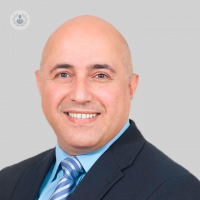The best way to treat recurrent UTIs
Written by:Long-term low dose antibiotic therapy was previously used for the treatment of recurrent urinary tract infections for a long time. The rationale behind this was to keep a low-level dose of the antibiotic in the bloodstream to fight bugs and bacteria.
Mr Aza Mohammed talks about this prolonged use of antibiotics and how the Uromune system can help those with recurrent urinary tract infections, in particular women, without the need for antibiotics.

A prolonged use of antibiotics is counter-productive as it is associated with increased bacterial resistance to infections and the incidence of some serious side effects. It is therefore not advised to use long-term antibiotics routinely for recurrent UTIs.
There are global calls on governments and individuals for adherence to the appropriate use of antibiotics, therefore it is important to look for other treatment modalities for urinary tract infections.
How does the Uromune system work? Is it really a vaccine?
Uromune has been developed to prevent recurrent urinary tract infections in susceptible women. It is a true vaccine in the sense that it is composed of materials taken from four of the most common bugs causing UTIs in women. Once administered, it interacts with the immune system of the patient, resulting in life long protection from UTIs.
How is it administered?
The treatment is administered as puffs given under the tongue and the course of treatment is given over three months.
Who is it recommended for?
Uromune is recommended for patients with symptomatic recurrent urinary tract infections that have been diagnosed with microbiological testing of the urine. Patients should be aware of other conditions such as painful bladder syndrome (also known as interstitial cystitis) that can cause symptoms similar to urinary tract infections. These are unlikely to respond to the Uromune vaccine. Furthermore, patients should be thoroughly investigated to ensure that there are no other underlying causes for urinary tract infections, such as kidney stones.
Are there any risks to the treatment?
Uromune is usually well tolerated with only a few patients describing adverse reactions such as a rash.
What's the current evidence base for its use?
There have been a number of studies looking into the safety and efficacy of the Uromune vaccine in preventing urinary tract infections. These have proved to be promising in the treatment of recurrent urinary tract infections and the treatment is currently available in the UK for use.
If you'd like more information about Uromune or you’re someone who suffers from recurrent urinary tract infections, get in touch with Mr Aza Mohammed for a consultation.


